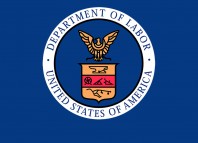The Centers for Medicare and Medicaid Services (CMS) issued the calendar year (CY) 2017 Medicare Physician Fee Schedule Proposed Rule, which was published in the July 15, 2016 Federal Register. Some of the key provisions proposed include:
New Physical Therapy and Occupational Therapy Codes
CMS is proposing new CPT codes for physical therapy and occupational therapy evaluative procedures. The new codes are listed on Page 350 of the proposed rule in table 19 and include: 97X61, 97X62, 97X63, 97X64, 97X65, 97X66, 97X67, and 97X68. These codes are deemed “always therapy” regardless of the type of provider who bills for the service, and thus are subject to the statutory therapy caps.
Misvalued Therapy Codes
As part of the continued misvalued code initiative, CMS identifies ten potential therapy codes that fall under the “codes that account for the majority of spending under the physician fee schedule” statutory category. The ten codes that CMS requests comment on include the following: 97032 electrical stimulation; 97035 ultrasound therapy; 97110 therapeutic exercises; 97112 neuromuscular reeducation; 97113 aquatic therapy/exercises; 97116 gait training therapy; 97140 manual therapy 1/regions; 97530 therapeutic activities; 97535 self-care management training; and G0283 electrical stimulation other than wound.
Physician Value-based Modifier
The Value-based Payment Modifier (VM) provides for differential payments under the PFS to self-employed physicians, groups of physicians, and other eligible professionals (EPs) based on the quality and cost of care they furnish to beneficiaries enrolled in the traditional Medicare Fee-for-Service (FFS) program. Under the VM Program, performance on quality and cost measures can translate into payment incentives for EPs who provide high quality, efficient care, while EPs who underperform may be subject to a downward adjustment. This program is set to expire on January 1, 2019, as a new comprehensive program required by the Medicare Access and CHIP Reauthorization Act, called the Merit-based Incentive Program, begins in CY 2019. For CY 2017, CMS requests feedback on four scenarios that aim to help physician groups and solo practitioners better predict the outcome of their final VM adjustment and to minimize claims reprocessing.
Medicare Shared Savings Program
Within the Medicare Shared Savings Program, CMS proposes to introduce beneficiary protections related to the use of the skilled nursing facility (SNF) 3-Day Waiver, currently limited to beneficiaries in a Track 3 Accountable Care Organization (ACO). CMS estimates the first SNF 3-day rule waiver applications from Track 3 ACOs to be accepted later this summer. The following additional beneficiary protections are proposed in order to ensure proper use of the SNF 3-day rule waiver:
- Establishment of a 90-day grace period that would permit payment for SNF services provided to beneficiaries who were initially on an ACO’s prospective assignment list for a performance year, but subsequently excluded during the performance year;
- Requirement that a beneficiary who was never prospectively assigned to a waiver-approved ACO is not subject to non-covered SNF services; and
- Misuse of a waiver may result in CMS taking remedial action against an ACO. CMS has indicated they will develop a process for ACOs to confirm that they have met all the SNF 3-day rule waiver requirements and requests comments on the proposed beneficiary protection policies.
Medicare Advantage Provider Enrollment
CMS proposes to require Medicare Advantage (MA) organization providers and suppliers to also be enrolled in Medicare in an approved status. The statutory definition of a “provider of services” includes a hospital, critical access hospital, SNF, a comprehensive outpatient rehabilitation facility, a home health agency, or a hospice. According to CMS, this requirement is needed to ensure that MA enrollees receive appropriate or medically necessary items or services from health care providers and suppliers that fully comply with Medicare enrollment requirements and have not had their privileges revoked. The Medicare enrollment requirement would be part of CMS contracts with MA plans, and those failing to meet this requirement could be subject to contract actions ranging from sanctions to termination. This proposal would create consistency with the provider and supplier enrollment requirements for all other Parts of Medicare (i.e., Medicare Part A, Part B, and Part D), and would also parallel requirements for providers participating in Medicaid managed care organizations.
















